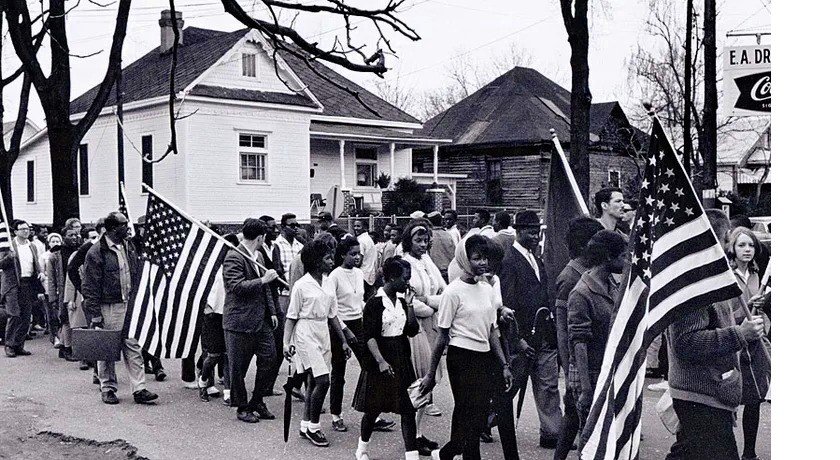Civil Rights in the United States: Know Your Rights

Civil Rights in the United States are the bedrock of our society, ensuring that every citizen is granted fundamental freedoms and protections, regardless of their background or beliefs. Understanding these rights is not just a matter of legal knowledge but an essential step in being an active and informed member of a just and equitable society.
In this article, we will take a deep dive into the world of civil rights in the United States, exploring their historical origins, the evolution of key legislation, landmark Supreme Court cases, civil rights movements, contemporary issues, and the importance of knowing and exercising your rights. So, let’s embark on this enlightening journey and “Know Your Rights.”
Contents
- 1 The Origin of Civil Rights in the United States
- 2 The Evolution of Civil Rights
- 3 Key Milestones in Civil Rights History
- 4 The Role of Legislation in Protecting Civil Rights
- 5 Landmark Supreme Court Cases
- 6 Civil Rights Movements
- 7 Contemporary Civil Rights Issues
- 8 The Importance of Knowing Your Rights
- 9 How to Exercise Your Civil Rights
- 10 Organizations and Resources for Civil Rights
- 11 Challenges and Controversies
- 12 The Future of Civil Rights
- 13 Conclusion
- 14 FAQs
The Origin of Civil Rights in the United States
The concept of civil rights in the United States dates back to its founding. These rights encompass the basic freedoms and protections granted to every citizen, regardless of race, gender, religion, or other factors. The foundations of civil rights lie within the Constitution.
The Evolution of Civil Rights
Over the years, civil rights have evolved, reflecting the nation’s changing values and societal norms. The struggle for equal rights has been an ongoing battle, with significant progress made in the face of adversity.
Key Milestones in Civil Rights History
To fully understand the importance of civil rights, one must explore pivotal moments in history, such as the Emancipation Proclamation, the Civil Rights Act of 1964, and the Voting Rights Act of 1965.
The Role of Legislation in Protecting Civil Rights
Legislation plays a crucial role in safeguarding civil rights. The government has enacted various laws and acts to promote equality and prevent discrimination.
Landmark Supreme Court Cases
Supreme Court decisions have had a profound impact on civil rights. Cases like Brown v. Board of Education and Roe v. Wade have reshaped the legal landscape and the fight for civil liberties.
Civil Rights Movements
The Civil Rights Movement of the 1950s and 1960s, led by figures like Martin Luther King Jr., Rosa Parks, and Malcolm X, brought about significant social and legislative change.
Contemporary Civil Rights Issues
Modern civil rights issues include issues like LGBTQ+ rights, immigration, and criminal justice reform. These are areas where the fight for equality and justice continues.
Read More: A Full Guide to Understanding Your Civil Rights
The Importance of Knowing Your Rights
Understanding your rights is vital. It empowers you to stand up for yourself and others when those rights are challenged or violated.
How to Exercise Your Civil Rights
Knowing your rights is one thing; exercising them is another. We’ll explore practical ways to assert your civil rights and be an active participant in a just society.
Organizations and Resources for Civil Rights
Numerous organizations and resources are available to assist individuals in advocating for their civil rights. We’ll provide a list of valuable resources to turn to when in need.
Challenges and Controversies
While significant progress has been made in the fight for civil rights, challenges and controversies persist. We’ll delve into some of the ongoing debates and obstacles.
The Future of Civil Rights
The future of civil rights in the United States holds promise, but it also presents challenges and uncertainties. As our society evolves, so too must our understanding of and commitment to civil rights. The path forward involves addressing issues like racial and gender equality, LGBTQ+ rights, and the ever-changing landscape of technology and privacy. It also requires fostering a sense of unity and empathy among diverse communities.
The future of civil rights hinges on continued advocacy, education, and a collective determination to create a more inclusive and equitable society. While challenges persist, the ongoing dialogue and activism surrounding civil rights promise a future where everyone can enjoy their full range of liberties, free from discrimination and inequality.
Read More: Civil Rights Laws and Affirmative Action: Promoting Diversity 2023
Conclusion
In conclusion, the landscape of civil rights in the United States is both a testament to progress and a reminder of the ongoing work needed to create a more just and equitable society. Throughout this article, we’ve journeyed through the historical roots of civil rights, their evolution, and the pivotal moments that have shaped our nation’s commitment to equality.
It’s clear that knowing your rights is not just a matter of knowledge; it’s an act of empowerment and a call to action. As we move forward, let’s remember that civil rights are not static but a living concept that continues to evolve and expand. By understanding, advocating for, and exercising our rights, we contribute to a brighter and more inclusive future for all.
FAQs
How can I report a civil rights violation?
If you believe your civil rights have been violated, you can report the incident to your local civil rights enforcement agency or seek legal counsel.
What are the differences between civil rights and civil liberties?
Civil rights pertain to the protection from discrimination, while civil liberties relate to individual freedoms protected by law.
What role does the media play in civil rights advocacy?
The media plays a significant role in shaping public opinion and raising awareness about civil rights issues.
Are civil rights limited to U.S. citizens?
Civil rights extend to all individuals within the United States, regardless of citizenship status.
How can I get involved in civil rights activism?
You can get involved in civil rights activism by joining or supporting civil rights organizations, attending rallies and protests, and staying informed about current issues.





